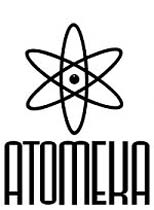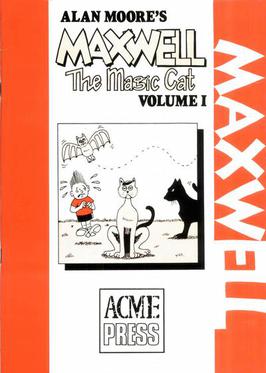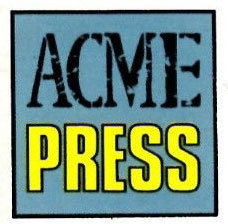
The Comics Journal, often abbreviated TCJ, is an American magazine of news and criticism pertaining to comic books, comic strips and graphic novels. Known for its lengthy interviews with comic creators, pointed editorials and scathing reviews of the products of the mainstream comics industry, the magazine promotes the view that comics are a fine art, meriting broader cultural respect, and thus should be evaluated with higher critical standards.

Peter Bagge is an American cartoonist whose best-known work includes the comics Neat Stuff and Hate. His stories often use black humor and exaggerated cartooning to dramatize the reduced expectations of middle-class American youth. He won two Harvey Awards in 1991, one for best cartoonist and one for his work on Hate. In recent decades Bagge has done more fact-based comics, everything from biographies to history to comics journalism. Publishers of Bagge's articles, illustrations, and comics include suck.com, MAD Magazine, toonlet, Discover, and the Weekly World News, with the comic strip Adventures of Batboy. He has expressed his libertarian views in features for Reason.

Cracked was an American humor magazine. Founded in 1958, Cracked proved to be the most durable of the many publications to be launched in the wake of Mad magazine.

Crisis was a British comic anthology published by Fleetway Publications from 17 September 1988 to October 1991, initially fortnightly and later monthly. Designed to appeal to older readers than other Fleetway titles in order to take advantage of a boom in interest in 'adult' comics, Crisis featured overtly political and complex stories; one issue was even produced in conjunction with Amnesty International.

Amazing Heroes was a magazine about the comic book medium published by American company Fantagraphics Books from 1981 to 1992. Unlike its companion title, The Comics Journal, Amazing Heroes was a hobbyist magazine rather than an analytical journal.
Judge Dredd: The Megazine is a monthly British comic magazine, launched in September 1990. It is a sister publication to 2000 AD. Its name is a play on words, formed from "magazine" and Judge Dredd's locale Mega-City One.

Kitchen Sink Press was a comic book publishing company founded by Denis Kitchen in 1970. Kitchen Sink Press was a pioneering publisher of underground comics, and was also responsible for numerous republications of classic comic strips in hardcover and softcover volumes. One of their best-known products was the first full reprint of Will Eisner's The Spirit—first in magazine format, then in standard comic book format. The company closed in 1999.

Speakeasy Comics was a Canadian publishing company of comic books and graphic novels which operated from 2004–2006. Based in Toronto, Ontario, Speakeasy published monthly comics, creator-owned independent series, original graphic novels, and collected out-of-print creator-owned comics series that had originated with other companies. Its best-known titles were Atomika, Beowulf, The Grimoire, and Rocketo.

Trident Comics was a short-lived comic book publishing company based in Leicester, UK. Specialising in black-and-white comics created by new British talent, it was formed in 1989 as an offshoot of the comics distributor/wholesaler Neptune Distribution, and went out of business in 1992 when Neptune was acquired by a competitor.

Atomeka Press is a British publisher of comic books set up in 1988 by Dave Elliott and Garry Leach. Atomeka ceased publishing in 1997, was briefly revived from 2002 to 2005 and revived again in 2013.
British small press comics, once known as stripzines, are comic books self-published by amateur cartoonists and comic book creators, usually in short print runs, in the UK. They're comparable to similar movements internationally, such as American minicomics and Japanese doujinshi. A "small press comic" is essentially a zine composed predominantly of comic strips. The term emerged in the early 1980s to distinguish them from zines about comics. Notable artists who have had their start in British small press comics include Eddie Campbell, Paul Grist, Rian Hughes, Jamie Hewlett, Alan Martin, Philip Bond and Andi Watson.

Australian comics have been published since 1908 and Australian comics creators have gone to produce influential work in the global comics industry,

Maxwell the Magic Cat was a British comic strip written and drawn by Alan Moore under the pseudonym "Jill de Ray". Moore produced the strip for the weekly Northants Post from 1979 to 1986.
New Media Distribution/Irjax Enterprises was a comic book distributor and publisher active from the mid-1970s to the mid-1980s. In 1978, the company's legal actions against the dominant distributor of the era, Sea Gate Distributors, widened the field for the direct market to expand. In 1982, when Irjax's distribution arm went out of business, its processing centers and warehouses formed the basis for Diamond Comics Distributors, the now-dominant comics distributor.

Harrier Comics was a British comic book publisher active in the mid-to-late 1980s. Harrier was notable for putting out black-and-white comics in a mold more similar to American comics than to typical British fare.

Rocket's Blast Comicollector (RBCC) was a comics advertising fanzine published from 1964 to 1983. The result of a merger with a similar publication, RBCC's purpose was to bring fans together for the purpose of adding to their comic book collections. It also proved to be a launching pad for aspiring comic book creators, many of whom corresponded and exchanged their work through RBCC, and published work in the fanzine as amateurs.

Acme Press Ltd., later known as Acme Comics, was a British comic book publisher active from 1986 to 1995. The company's initial publication was Speakeasy, a monthly fanzine of comics news and criticism. Acme published a number of licensed comics featuring the British espionage properties James Bond and The Avengers. The company also published early work by popular British creators like Alan Moore, Brian Bolland, and Warren Pleece, and it published English translations of some European comics. In the latter half of its existence, Acme formed relationships with American independent publishers Eclipse Comics and Dark Horse Comics, enabling Acme's comics to be distributed in the United States.

Speakeasy was a British magazine of news and criticism pertaining to comic books, comic strips and graphic novels. It published many interviews with both British and American comics creators.
Martin Lock is a British comic book critic, writer, and publisher. As publisher of the fanzines BEM and Fantasy Advertiser, and then publisher of Harrier Comics, he was an important figure in British comics fandom in the 1970s and 1980s.

BEM, originally known as Bemusing Magazine, was a British fanzine focused on comic books which was published from 1973 to 1982. The brainchild of Martin Lock and billed as "The Comics News Fanzine," BEM featured American and British comics industry news and gossip, interviews, comic reviews, essays, columns, and comic strips.
















